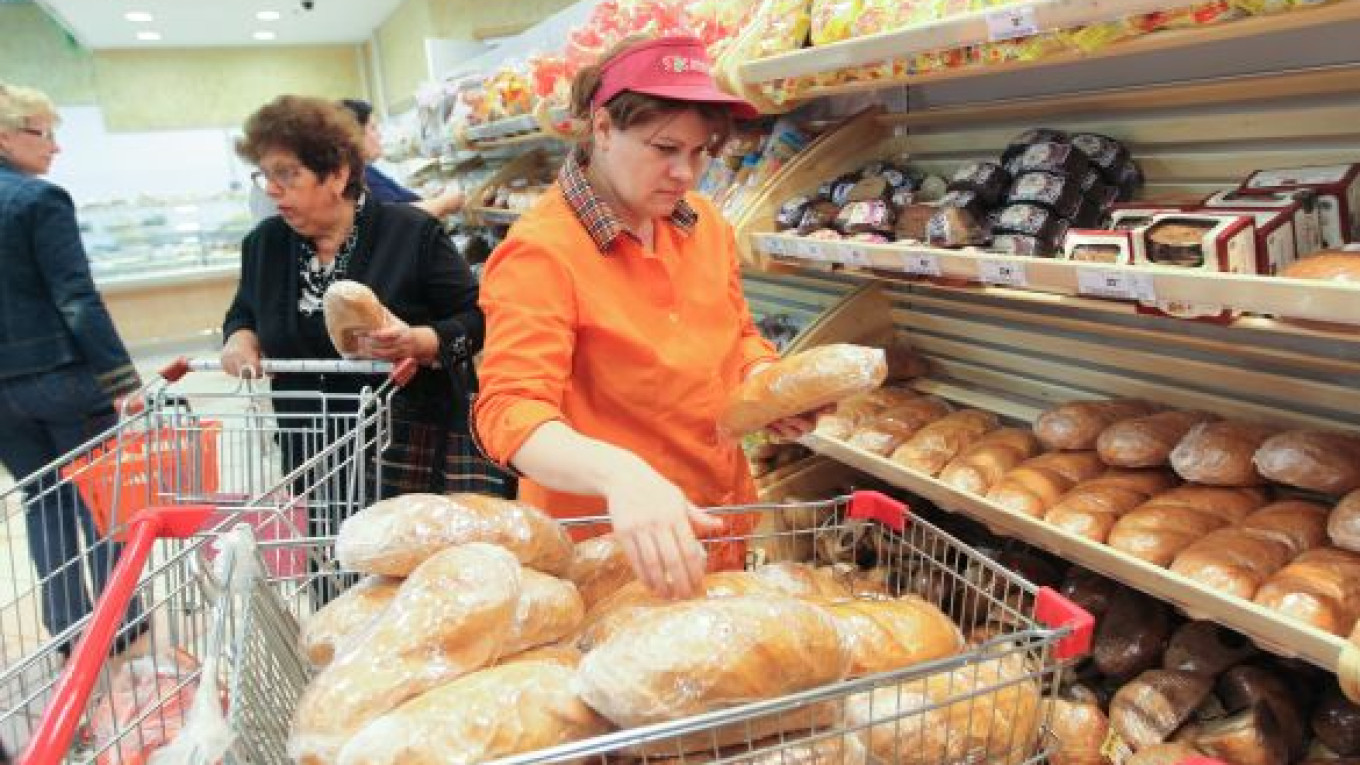Bread prices in Russia are a historically touchy subject, one that politicians and businesses prefer to tread carefully.
So when breadmakers in the Moscow region declared this week that they might be forced to cut off supplies to stores because of rising production costs, the announcement sparked a flurry of worried talk.
"I wasn't expecting this," Yelena Sabatarova, head of the Moscow regions' Breadmakers Union, told The Moscow Times Wednesday. She added that she has had to field an onslaught of phone calls throughout the day. "If I am speaking to you so emotionally now it is because this is such a sore subject."
The union has filed an appeal to the Moscow region's branch of the Federal Anti-Monopoly Service. The breadmakers argued that they are producing bread at a loss or barely making ends meet because of increasing flour, energy and labor costs. Retailers refuse to raise the purchase prices for bread while themselves putting markups of up to 35 percent, Sabatarova said.
The union wants the government to force the retailers to increase bread prices.
"I wouldn't want the industry to collapse but the fact is we are in a deep crisis," she said. "Banks have stopped giving us loans [to buy flour]."
A top executive of Bread Factory No. 28 in Zelenograd estimated that flour prices increased by 50 percent over the past year, which experts say is due to a combination of droughts and strong domestic demand. The highest quality flour now costs up to 157,000 rubles ($5,011) per ton.
Bread prices must increase by at least 10 percent for the factory to survive and by 20 percent to become profitable.
The breadmakers have presented their requests directly to retailers, asking to increase bread prices by 10 percent on average. Right now some bread is selling as low as 7.20 rubles per loaf, whereas the cost of production is 14.6 rubles, Sabatarova said.
Responses from retailers were mixed. Some cut off the supplies of specific producers while others agreed to small price increases. X5 Retail Group increased its buying price by 3 to 5 percent, RBC Daily reported.
Breadmakers said that bread will not completely disappear from store shelves, but its quality will decline as producers switch to lower-cost ingredients. Even now breadmakers are forced to scale down the quality of the flour they use, and they don't have the money to update their technology.
Related articles:
A Message from The Moscow Times:
Dear readers,
We are facing unprecedented challenges. Russia's Prosecutor General's Office has designated The Moscow Times as an "undesirable" organization, criminalizing our work and putting our staff at risk of prosecution. This follows our earlier unjust labeling as a "foreign agent."
These actions are direct attempts to silence independent journalism in Russia. The authorities claim our work "discredits the decisions of the Russian leadership." We see things differently: we strive to provide accurate, unbiased reporting on Russia.
We, the journalists of The Moscow Times, refuse to be silenced. But to continue our work, we need your help.
Your support, no matter how small, makes a world of difference. If you can, please support us monthly starting from just $2. It's quick to set up, and every contribution makes a significant impact.
By supporting The Moscow Times, you're defending open, independent journalism in the face of repression. Thank you for standing with us.
Remind me later.


